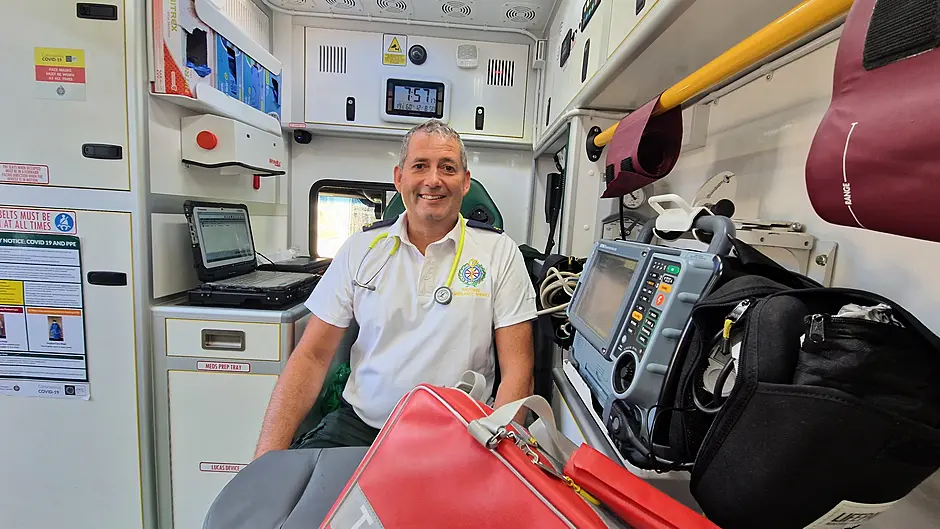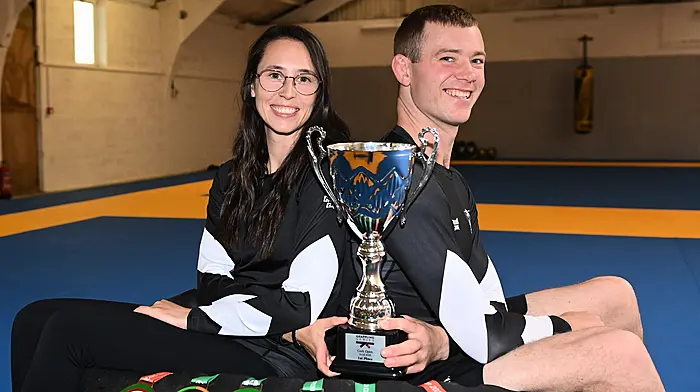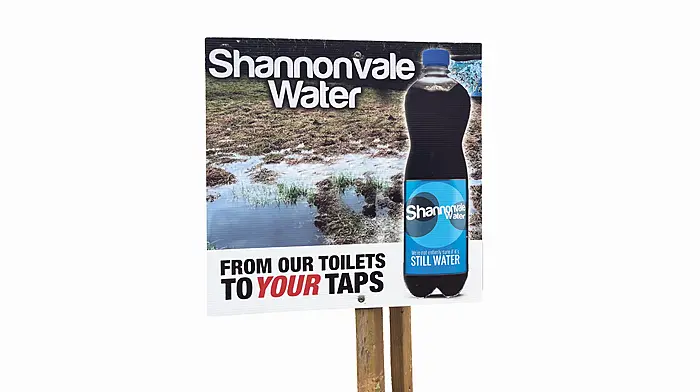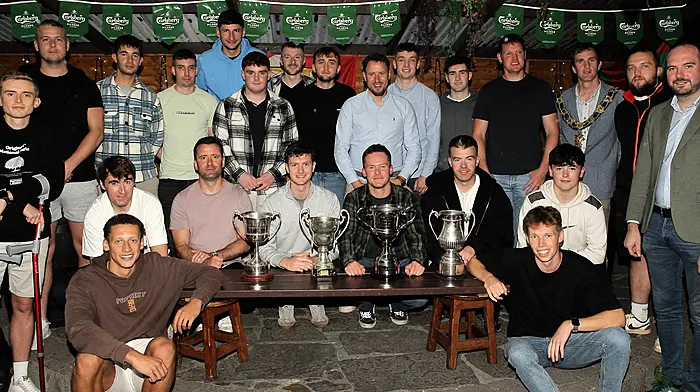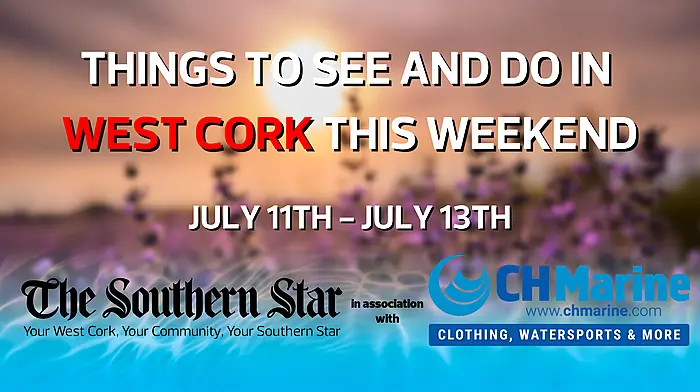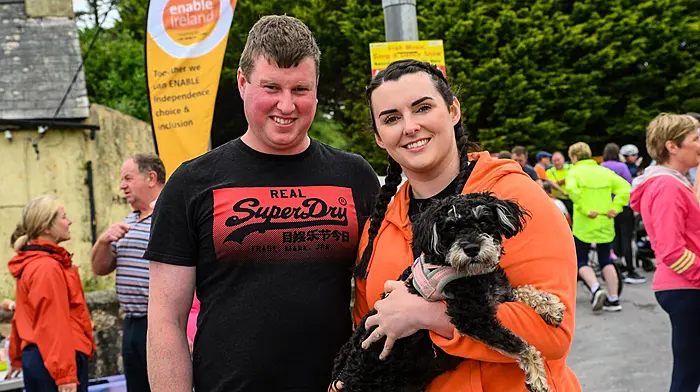This article originally appeared in our Autumn 2023 Careers and Courses supplement – read the full supplement by visiting southernstar.ie/epaper
The idea of changing career paths can be very daunting, but if it means achieving happiness through real job satisfaction, then it might be the best move you ever make. Emma Connolly spoke to three local people who followed their calling.
GARRY Minihane was 35 years old when he made the radical career shift from being a compositor in The Southern Star to working as a paramedic with the ambulance service, and he admits that at the time people thought he was mad.
He had a secure job that he enjoyed, a mortgage, and two small kids, and it was more than 20 years since he had been in college.
‘But I knew it was the right decision for me,’ said the Skibbereen man. After his Leaving Cert in 1986, Garry studied civil engineering in CIT. Having had summer jobs in The Southern Star, he was offered a position as a compositor which he took, joining in 1998.
‘I trained as a compositor at Bolton Street College of Technology, Dublin. My main job was page make-up, typesetting and designing adverts, and I was also a freelance photographer,’ he said.
It was around this time that he joined Skibbereen Fire Service as a part-time fireman, volunteering for a decade.
‘Being a member of the fire service and Civil Defence, attending emergency events and helping people, there was something in my mind to try and get into the full-time emergency service.
‘I remember I was sitting at my desk one day when a friend sent me a text to say the ambulance service was advertising.
‘It played on my mind for a day or two and I applied and was offered a post. Naturally, I had some reservations, but I had the support of my wife Tricia and our two kids, so I took the plunge and have never looked back.’
He joined the National Ambulance Service in January 2005, training at the National Ambulance Service School and University College Dublin and qualified as a Paramedic with a Diploma in Emergency Medical Studies.
Garry now works as a paramedic on a frontline emergency ambulance based at Skibbereen and volunteers off-duty with the West Cork Rapid Response where he attends calls when required by Ambulance Control.
‘The work involves treating all types of emergency medical and trauma calls. You could be delivering a baby one minute and the next call could be trying to save someone’s life from cardiac arrest or a car crash.
‘As our population ages we deal with a lot of elderly people with medical problems and sometimes just listening to their life stories as you take them to hospital is truly amazing.
‘Covid was hard and we had a lot of tough calls, especially when we took a patient from a house and the family thought they might never see them alive again. There was a lot of emotion and a lot of tears shed during these calls but the paramedics all over Ireland went away above to help our citizens during this difficult time. When you save someone’s life, it is an amazing feeling but when you have to tell a family their loved one has passed it is tough.
'I have been very fortunate to have good working partners in my career to date and we have a great crew based in Skibbereen.’
Going back to education after nearly a 20 year gap was hard, he admits, but there’s constant upskilling and training in his role as a paramedic.
‘Paramedics now have over 30 drugs which they can administer along with other lifesaving skills. Every day you go to work you learn something,’ he said.
His advice to anyone thinking of changing career?
‘If you have any inkling, my advice is to go for it. You may regret it later in life if you don’t.’
Adrienne Harrington
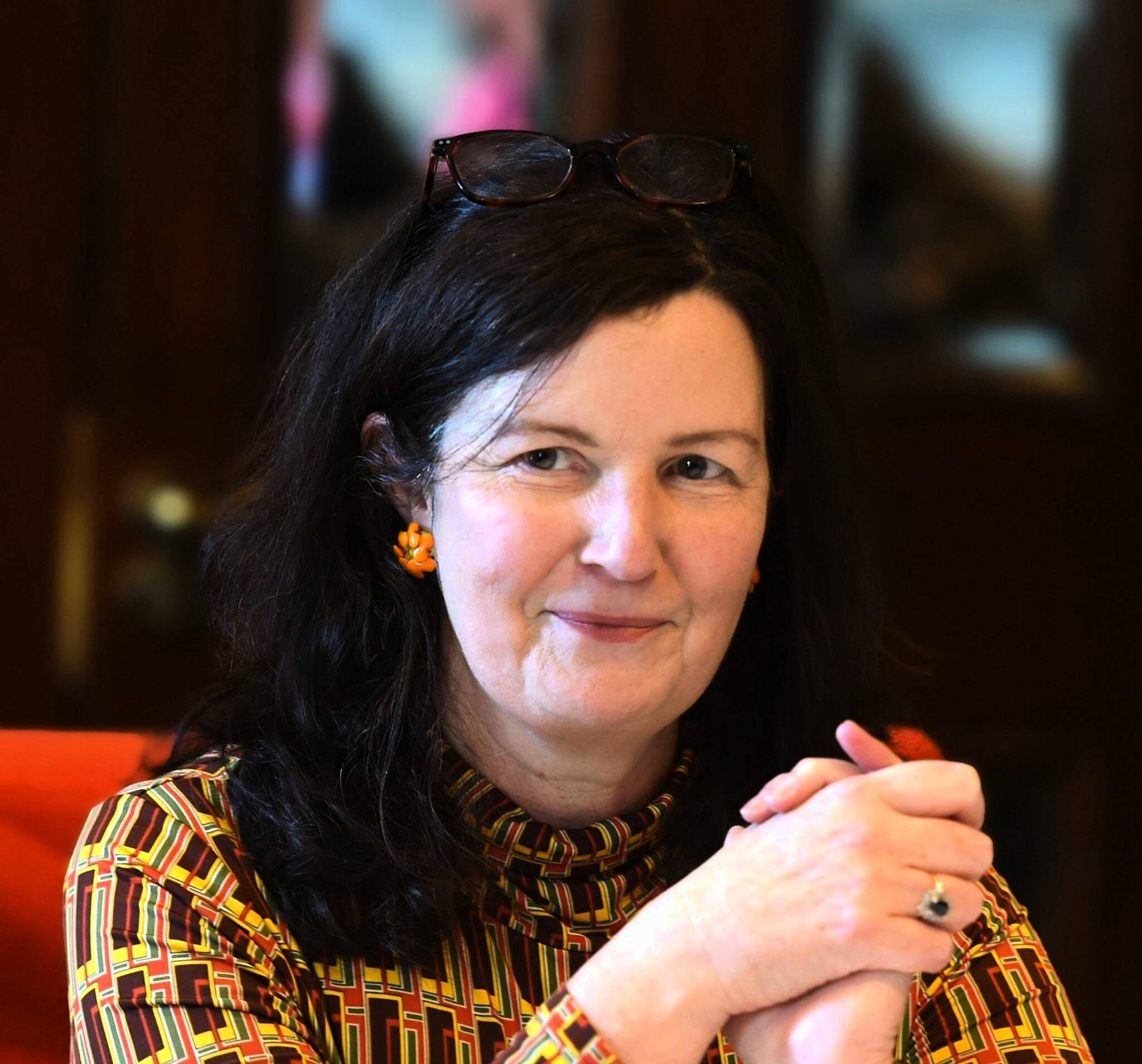 Adrienne Harrington, originally from Dublin, and now living in West Cork has had a very varied and interesting career path to date.
Adrienne Harrington, originally from Dublin, and now living in West Cork has had a very varied and interesting career path to date.
WE all have transferrable skills and should focus on what we can bring to a new role rather than on having every one of the requirements of a job.
That’s the advice of Adrienne Harrington, who has worked in a variety of diverse and demanding roles, including managing a social welfare office, advising government ministers to being the CEO of Skibbereen’s Ludgate Hub.
‘I really believe that the most important things that anyone can bring to a career or job are common sense and the ability to get on with people. Once you have the basics, you can upskill on the technical aspects of a lot of roles, and I’ve done this a lot. But common sense can never be taught.’
Originally from Dublin, now living in Lisheen, Adrienne didn’t go to college after school – she was unable to take her place due to family circumstances – and joined the Civil Service as a clerical assistant at the age of 18.
She worked her way up through the system and by her mid-20s was manager of the dole office/labour exchange in a large Dublin suburb.
‘It was a challenging job, with over 5,000 people signing on every week and a large number of staff. But it was one of those jobs that really made me as a manager – it was sink or swim!’
From there, she was promoted to the Department of Health when Micháel Martin was minister and she worked with him on some interesting policy issues, including regulating health professionals. At that time, anyone could set up in business and call themselves a psychologist or a physiotherapist.
‘I then transferred to the Department of the Taoiseach (2001-2002) when Bertie Ahern was Taoiseach but I was too junior to have any dealings with him. I was working on reducing red tape for businesses – a lot of people I know who run their own businesses would say that I failed at that one!’
Next, an opportunity came up to take a break from the Civil Service and she worked for the professional body for psychologists for five years as its chief executive officer.
‘I returned to the Civil Service, this time to the Houses of the Oireachtas, working in Leinster House. It was a fascinating place to work, and as Head of the Secretary General’s Office, I worked with a wide range of politicians, their staff and the civil servants working there (Brian Cowen and Enda Kenny were the two Taoisigh during my time there). It was often tense, with lots of egos to manage. While politicians very often get bad press, I found most of them to be genuine and hard-working.’
While working in Leinster House, she took a seven-month break and went to work as a development worker, travelling to Namibia with Voluntary Services Overseas (VSO) where she supported organisations working with people with HIV/AIDS, putting in place systems to allow them to measure the impact of their work.
She returned to Leinster House, and a few years later, she was asked to head up a new unit in the Department of the Taoiseach to prepare for the introduction of the then new European data protection law, the GDPR.
‘A part of that job was exploring the impacts of digitisation for Ireland and so I found myself in Skibbereen for Digital Week in 2015 and 2016, seeing how high-speed broadband could impact a rural area. When in Skibbereen, I visited Ludgate and met some of the board. I was already familiar with West Cork as I had worked in Bantry in m 20s and was still visiting regularly for summer holidays and long weekends. At that time, my husband George and I were looking for a holiday home in the area with a plan to move down when we retired.
‘In early 2017, Ludgate advertised for a ceo. I applied, was successful and took up the role in September 2017. After three years, I was ready for a move but decided to take a few months off first. That was February 2020, Covid then hit and I spent my few free months in my 2k and 5k limits in Lisheen, which wasn’t a bad thing at all!’
Adrienne is now Head of Enforcement, Legal and Governance at the Central Statistics Office (CSO) which is headquartered in Mahon, Cork. ‘The work involves a lot of data protection work and I have had to retrain on this aspect. But the role also contains a lot of what I’ve done before in other roles, such as risk management, project and programme management. While I didn’t go to college after school, I studied at night for 12 years and have an MBS and a Doctorate in Governance, and have been able to draw on what I learned on those courses.’
There is no guarantee that things will always work out as planned, but Adrienne knows she’d have regretted it if she hadn’t taken the opportunities that came her way.
‘I also believe in trying to do things that interest you. I’ve always had a great interest in food and in 2019, started a post-graduate diploma in Irish Food Culture at UCC. This has taken me into research which was a new area for me, and as a result, I’ve recently been offered an adjunct professorship in Maynooth university. And it’s never too late to change. My roles in Ludgate and the CSO, as well as Maynooth have all happened for me in my 50s.’
Anna Healy
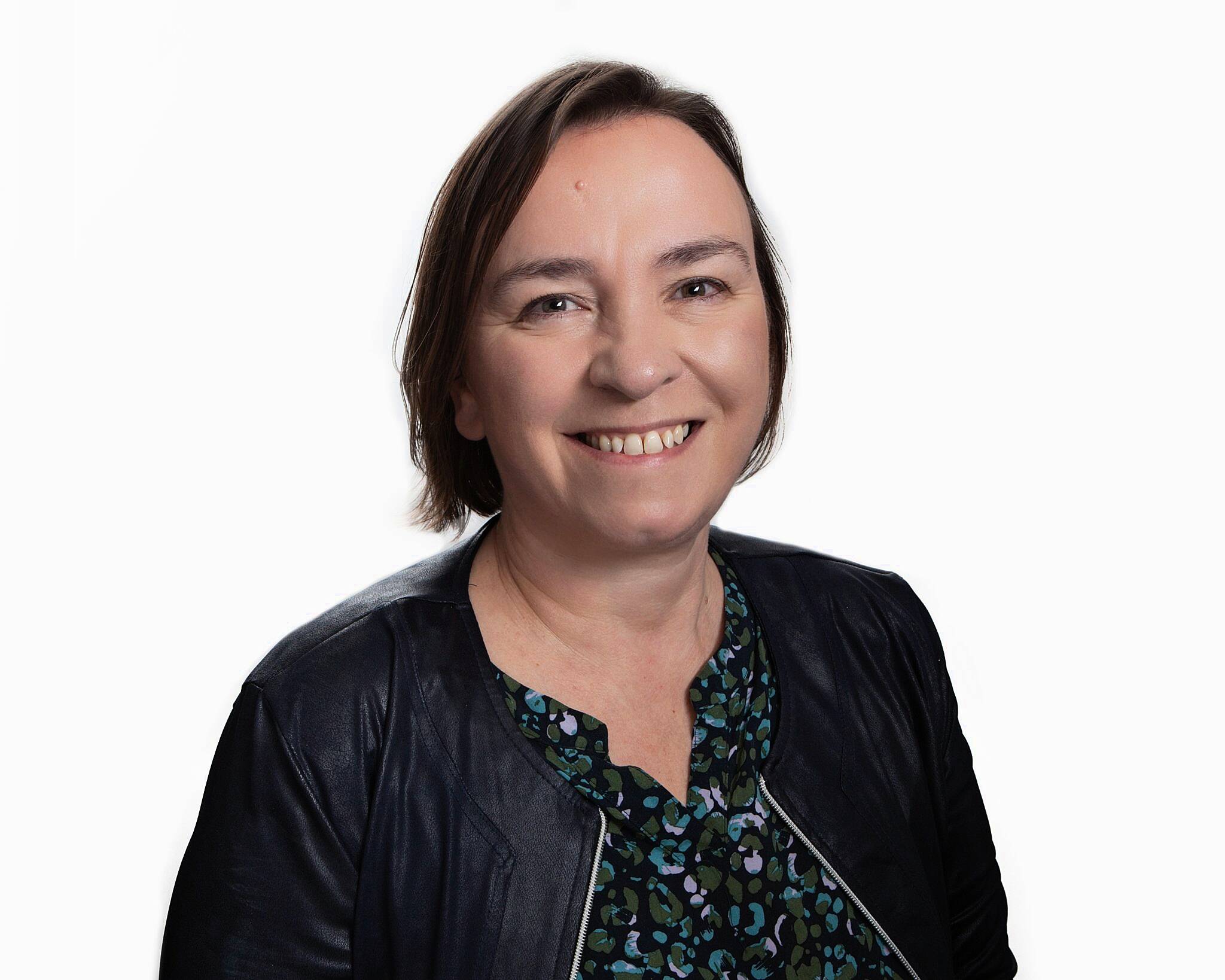
ANNA Healy has changed careers twice, with a brief interlude as a diving instructor, before setting up her own coaching business.
‘It is continually evolving for me, I like a challenge!’ said Anna, who lives in Courtmacsherry with her family.
Growing up on a farm in Kerry, she remembers being ‘mad for road!’.
‘I knew I had to go to college and I chose Business Studies in UL, but I was way too immature at the time and didn’t know how to study properly so I failed after three years. I returned to college in Cork CIT (now MTU) as a mature student and studied Social Care which I loved. I worked in children’s residential centres for 10 years as a child care worker and moved into management for a while too. I loved the variety of the work but it was quite stressful.
‘After about 10 years I experienced burnout and decided to take a short career break to recover and reflect. I was diving in West Cork around this time as an outlet to the stressful work and I trained up to be an open water scuba diving instructor. I worked for a summer with a diving school in Baltimore and haven’t left West Cork since!’
Anna decided that she would be happier if she found a job that suited her values, her experience and skills, and got a role as job coach with Employ Ability Service where she worked for 13 years.
‘It was so rewarding to work with my clients, building relationships and helping them find and keep work. I loved working with all the support agencies and businesses in the area. There was huge variety in the role and the team was dedicated to supporting their clients,’ she said.
There wasn’t one particular moment that motivated her to set up her own business, but she felt that she needed a new challenge. ‘As I had a lot of training and experience gained over the years and wanted to try it in a different area.
‘I also wanted more flexibility around my family as my children were small. I had met lots of entrepreneurs in my time and I think that I admired their sense of adventure. I joined Network Ireland West Cork and was inspired by the women in business and there was no going back. I started coaching part-time initially, to get a sense of what would it be like and I loved it. I took a career break from EmployAbility for a year to see if this new life would suit me. That was over four years ago!’
As a business coach and mentor, Anna works with women who want to grow a profitable business with joy and ease.
‘I work one-to-one and also have a business mentoring group called the Lighthearted Women. I am starting a 12-week Business Accountability Group called “Focus” in September which will help with planning, goal setting and getting results. I also support companies with designing and implementing their own in-house mentoring programmes. Mentoring is a practical approach to develop leaders and grow performance.’
While she had the skills needed to launch the business, she said she’s continually learning and the first stage can be a bit of a tall learning curve but it isn’t always the tangible pieces you learn. The biggest learning I made was with my mindset. There is a huge shift in identity from being an employee and self-employed and it is different for everyone.’ Her advice to anyone thinking of making a career change is that it’s never too late.
‘I have met women of all ages starting their business. My main advice is to get yourself a coach or mentor to support you along the way. Join a network of like-minded people to inspire you to take that step, and reach out to your Local Enterprise Office for training and support.’

